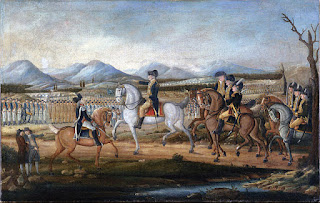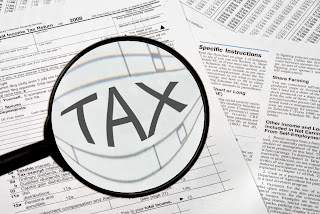Understanding our history can help us make better decisions in the future.
The United States went through many different tax laws that have made our nation what it is today. United States tax law history began with the British trying to tax the colonies, which lead to the American Revolution. Since then, we have been in charge of our own taxes and we continue to make this a great country. Poston, Denney, & Killpack, PLLC respects our history and what we have gained.
The Stamp Act
In 1765, the Parliament of Great Britain enforced a tax on the colonies which required them to use officially stamped paper for printed materials. This special paper was made in London and was embossed with a revenue stamp. Without this stamp, the paper would be worthless under British law. The tax charged to the colonies had to be paid in British currency as money printed by the colonies was unacceptable. This tax was to help pay for the troops that Great Britain had stationed in North America during the costly Seven Years’ War. Americans were not fans of being taxed without a voice in British Parliament, and were especially suspicious of troops that they felt they didn’t need or want. With the slogan “No taxation without representation,” they set up petitions and protests. The Stamp Act Congress was the first real stand against the taxes that Britain was enforcing. The Sons of Liberty was formed by protesters and demonstrators, using violent means to make their complaints heard. The Stamp Tax was never effectively collected as the distributors of the stamp tax were frightened and quit. Parliament eventually repealed the tax in 1766, effectively killing it as a United States tax law.The Townshend Acts
This 1767 act, named after Charles Townshend who was the Chancellor of the Exchequer, had several parts with each serving a different purpose. The Revenue Act of 1767 taxed the colonies on goods that were imported which the colonies couldn’t produce themselves. The money from paper, paint, lead, glass, and tea was originally intended to pay for the British military stationed in the Americas. The money, however, was redirected to the colonial governors and judges to maintain loyalty to Great Britain. The Indemnity Act, the Commissioners of Customs Act, the Vice Admiralty Court Act, and the New York Restraining Act were all initiated under the Townshend Acts as well. These acts were created to force compliance with trade regulations, to punish New York for not agreeing with the Quartering Act, and to give the British Parliament the right to tax the colonies. The colonies resisted and the British troops gathered in Boston to protect the officials that were supposed to enforce the acts. After a large crowd gathered and were verbally abusive to the troops, the soldiers fired into the crowd without an order, killing three people instantly. Two more people would die later due to injuries sustained during the shootings. This event became known as the Boston Massacre of 1770. British Parliament eventually repealed most of the laws but perpetuated the tax on tea because they felt that they had the right to tax the Americans. This United States tax law would go on to cause a lot of trouble for the British.The Tea Act
To import tea to the Americas, the British East India Company sold to a middleman who then organized and sent the shipment to the colonies. Once it arrived in the Americas, it was taxed and then distributed. To bypass the tax, American merchants would instead buy cheaper foreign tea producers, skirting the tax entirely. When the British East India Company faced bankruptcy, the British stepped in. They removed the middle man as distributor, and shipped directly to America. The price of the East India tea was now on par with alternative exporters, the tea tax remained. The tax on tea continued to fund activities under the Townshend Act, indirectly forcing the colonies to support Parliament’s right to tax. When the colonies understood what Parliament was trying to do, they harassed the distributors of the tea and were successful in stopping the tea from being distributed. The Boston Tea Party was born of this resistance.The Boston Tea Party
When Parliament tried to force the colonies to buy the British East India Company tea that they had taxed, the colonies resisted. On December 16, 1773, disguised as American Indians, the protesters gained access to a boat laden with tea and proceeded to dump its contents into the Boston Harbor, thus ruining the tea. Parliament replied with force and the American Revolution begun.Tariffs in America
The goal of a tariff is collect money that will fund the federal budget. The Tariff Act of 1789 was passed by the 1st United States Congress. The United States tax law of tariffs comprised 95% of the federal government’s revenue until 1913, when the Federal income tax was passed.The Whiskey Rebellion
After the American Revolutionary War, the newly formed federal government was in debt. The U.S treasury secretary, Alexander Hamilton, came up with the idea in 1791 to tax all distilled spirits to pay this debt. Because whiskey was the most popular spirit as the time, the tax was called the “whiskey tax”. Farmers who made whiskey from leftover grain and corn used the spirits as a form of currency and deeply resented the tax. Protesters eventually gathered in Pennsylvania, attacking the home of General John Neville who was the tax inspector. Washington got word and sounded the alarm to the governors of Virginia, Maryland, New Jersey, and Pennsylvania, sending 13,000 militiamen quell the violence. It worked; the farmers disbanded before the armies arrived, demonstrating that the United States tax laws, could eliminate violent protests by dissenting citizens. In the wake of these events, the whiskey tax remained difficult to collect and Thomas Jefferson’s Republican Party repealed the tax.United States Income Tax
This United States tax law is collected by federal, state, and local governments. It is applied to your income by a tax rate that fluctuates with economic conditions.The 16th Amendment to the U.S. Constitution: The 16th amendment, approved on February 3, 1913, allows Congress to tax income without sharing it with the states and without considering census data.
United States Estate Tax
The Gift and Estate Tax is a two part tax. The first part is the estate tax that taxes estates that are transferred after the death of the owner. The second part is a gift tax which applies to property that is transferred during someone’s life. This United States tax law regarding estates affects property that is passed on via a will or, if there is no will, whatever the state law implies.Payroll Tax
Another name for this United States tax law is the Federal Insurance Contributions Act tax or FICA. Social Security and Medicare, which help retirees and the disabled, are funded by this tax, imposed on employees and employers.Poston, Denney, and Killpack, PLLC can help you navigate through your own taxes and understand the United States tax law. Give us a call and let us know what we can do for you.














